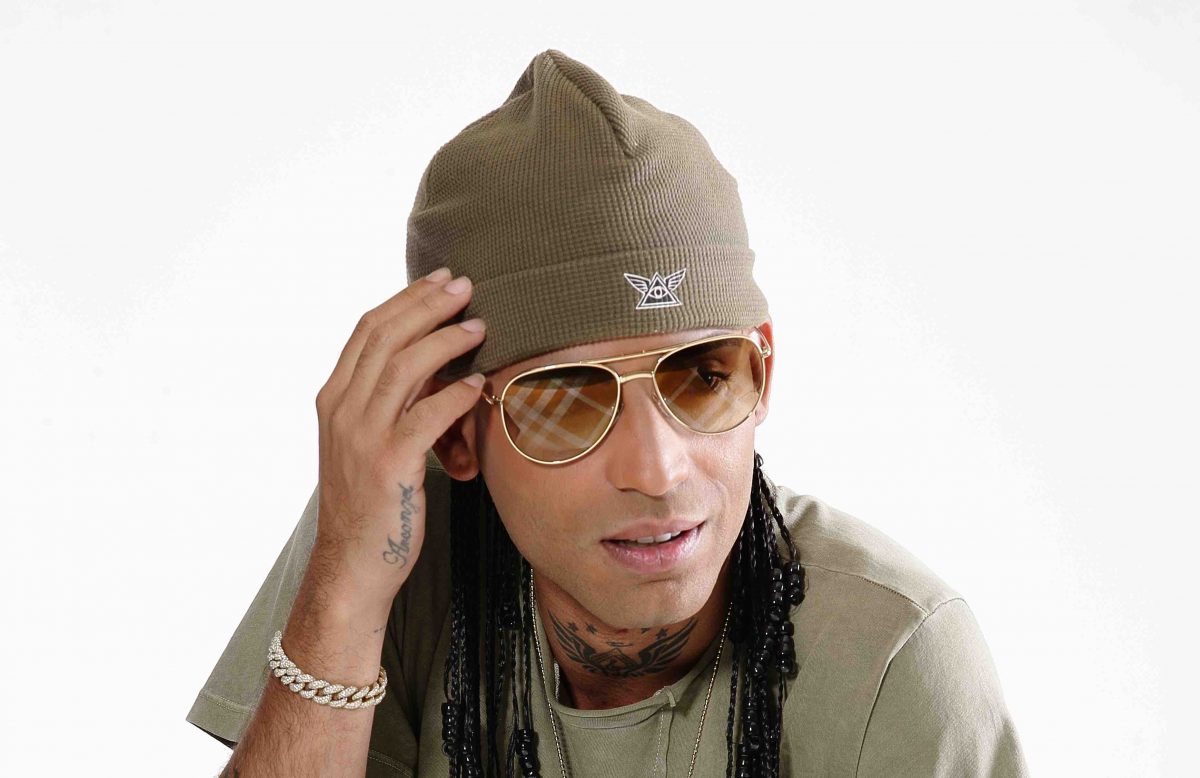Few artists have had as many lives in urbano music as Arcángel. The rapper and vocalist, born to Dominican parents in New York City, moved to Puerto Rico at a young age and chased reggaeton from its shadowy underground into the bright lights of the mainstream. Alongside his collaborator De La Ghetto, Arcángel became an early pioneer of the genre, and then one of its most dependable innovators, using his taut, high-pitched rasp to unlock an era of pop-minded reggaeton romántico.
In more recent years, Arcángel has been right at the center of the reggaeton industry’s pivot towards trap. His nimble verses have dotted some of the biggest collabs in the business, including “La Ocasión,” which helped rocket traperos into mainstream visibility, and “Tu No Vives Así,” a hit that set Bad Bunny up for his massive success. Arcángel’s position as part of the reggaeton vanguard has undoubtedly added legitimacy to rising artists, but his embrace of trap actually reflects his own compulsion to experiment with styles that swerve beyond the conventions of urbano. He’s always been on the cutting edge; even his early songs, like his massively popular “Chica Virtual” and “Tengo Tantas Ganas de Tí” have been prescient and prophetic, foreshadowing the sludgy, lo-fi possibilities of his genre. Arcángel has acknowledged this himself: he once declared that “El Pistolón,” his 2007 collab with De La Ghetto and Yaga & Mackie, was the first Latin trap song recorded.
Given his trajectory, it shouldn’t be too surprising that his latest album Ares abandons traditional reggaeton completely in favor of emerging sounds in the trap vein. But to call Ares a trap album is to oversimplify things — and, with a whopping 18 songs, this is an unwieldy compendium that is almost impossible to generalize. Arcángel hasn’t packed just trap on here; he loads up on R&B beats on “Lo Que Sea” and “Date Cuenta” and even adopts a boogaloo sample that rivals “I Like It” on “Un Vacilon (Young Maleo).” He spews rhymes in English on the breezy “Caribbean Air,” and he goes down a shockingly bright electropop route with J Balvin on “Corte, Porte y Elegancia.” As the album unravels, Arcángel keeps brandishing the gravelly adaptability of his voice like a slick sleight of hand.
The irony is that for all the bluster of moving toward trap, the weakest moments on the album tend to be trap songs that meander wearily on a bulk of the project. So much of what sets Arcángel’s sharp flow apart is his ability to raze against the deeper husk of his collaborators and bring an acerbic sweetness to darker elements of his music. His vocals are syrupy, but they can cut like a blade, and trap has often freed Arcángel up to test out the dynamics of his voice, letting him coil and recoil like a gentle-looking alley cat suddenly showing its claws.
But when Arcángel doesn’t have much tension to work with, he loses inertia, and songs like “Mi Primer Kilo” and “De La Renta” stretch along without real intentionality. It also doesn’t help that a few of these are the tracks that find Arcángel at his most uninspired lyrically — the lackluster and ribald contents of “En Su Boca” are as predictable as you’d imagine, and a background hook of “I know you wanna suck this dick” on “Los 3” teeters on parody.
Tracks like “El Granjero,” already one of the album’s biggest singles, are better opportunities for Arcángel to flex his trap abilities. His rhymes unwind as agilely and subtly as the susurration of a fan over the desperate plinking of dramatic keys. On the album, he also deftly pairs up with Tory Lanez on for the woozy “Victoria,” and he gives off slippery Wayne vibes on “Original,” a standout that’s boosted by Bad Bunny’s signature bark.
As Arcángel assured Rapetón recently, Ares doesn’t necessarily mean he’s done with reggaeton. “I’m a reggaetonero and I repeat, everything I have I owe to reggaeton,” he said. “What I wanted was to please myself a bit because I’ve been making this kind of music for such a long time.” The project isn’t signaling an entirely new direction — it’s letting Arcángel dive deeper into rhythms that have always caught his interest. If we’ve been paying attention to the more visionary tracks that have snuck into his repertoire, the shift on Ares feels like a sensible progression rather than a gimmick, and this is especially impressive at a time when so many Latino artists are siphoning trap’s popularity for their own gain. Reggaeton purists might dismiss Arcángel’s trap turn as a jump on the bandwagon, but he’s got an archive of sound explorations to backup the shift. Still, Ares shouldn’t be regarded as a permanent transition. It’s an album that can be best read as another rotation for an experimental forerunner that has more life cycles to complete.




